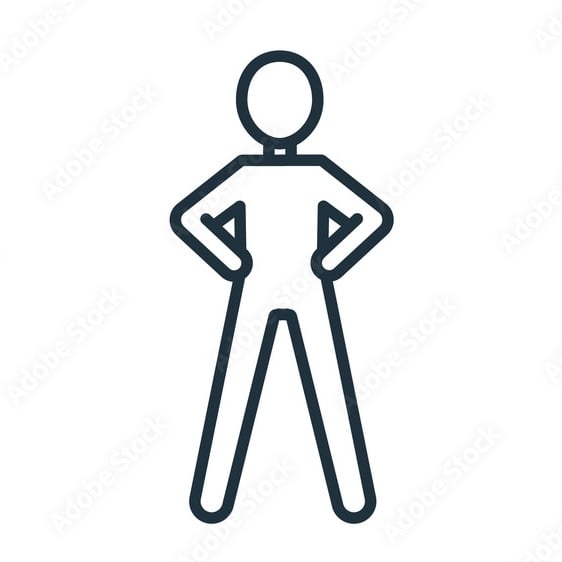There’s a difference between someone-needs-to-coordinate-and-manage-complex-undertakings “authoritarian” and line-the-dissidents-up-against-the-wall “authoritarian”. Tankies are the latter.
- 0 Posts
- 549 Comments
Lots of people say lots of silly things, nonetheless Trump is worse for the proletariat than Biden, and turning your nose up at the lesser evil endangers real people when the greater evil wins. You don’t have to vote for the greater evil to help tip the scales in their favor. Accelerationism is authoritarianism with extra steps and no one in the driver’s seat.
A tankie is, broadly, someone who wants to effect left-wing ideology using authoritarian methods. It originally referred to those who defended the USSR using tanks to suppress the Hungarian Revolution, but it could be aptly used to describe those who defend China’s actions in Tiananmen Square. It’s rightfully used as a perjorative, since authoritarian enforcement is antithetical to leftism, particularly communism.
Tankies are hypocrites who didn’t understand their self-proclaimed ideologies. If someone’s idea of communist praxis is lining up dissenters for the firing squad, you’re dealing with a tankie.
me, a disenfranchised Independent former Democrat who plans on voting for Jill Stein unless the DNC can produce a viable candidate, a MAGA.
Voting third party doesn’t necessary make you MAGA, but you’re certainly helping them.

 94·2 days ago
94·2 days agoWe’re only stuck with Biden because Biden and the people he put in charge of the DNC would rather risk trump than Biden step aside.
We’re stuck with Biden precisely because the DNC doesn’t want to risk Trump, and the incumbent advantage is significant.
 1·3 days ago
1·3 days agoNone of that contradicts the observation that, over time, the accumulation of capital through profit incentivizes private owners to reinvest that capital to increase the profit potential of their business. Passive investors (e.g. pension-holders) don’t do much of this, that much is true. Even small-scale investors (e.g. small business owners) typically only do this in positive, productive ways we like to see (e.g. reinvesting in the means of production to create more valuable products).
But large investors (e.g. corporations) inevitably bubble up. That’s what capitalism “selects” for, over time. They are heavily incentivized, at the demand of shareholders, to maximize profit. Profit = Revenue - Expenses, which means maximizing profit requires maximizing revenue and minimizing expenses.
Maximizing revenue eventually leads to suppressing competition through market forces (e.g. selling at a loss to drive smaller businesses to failure a la Walmart) and regulation (e.g. the aforementioned political influence through
briberygratuity), as well as directly exploiting monopolies to raise prices (e.g. Ticketmaster). Then there’s the many other mechanisms used to increase sales without increasing value (e.g. planned obsolescence, subscriptions, etc). Minimizing expenses eventually leads to cheaping out on quality (which nicely dovetails into increasing revenue through planned obsolescence) and minimizing wages.So what you get, in a model based on private investment and driven by profit, is an environment where the most successful investors with the most capital at their disposal to reinvest will be the ones who use every tool in their arsenal to maximize profit. Sure, there will be plenty of other small businesses and individual investors getting by, but the mega wealthy are an inevitable by-product. It’s natural selection.
And as the mega-wealthy get wealthier, they siphon wealth from down the food-chain. Wage suppression and price increases mean less disposable income for the average person to reinvest. Regulatory capture, as you said, sets a barrier to small businesses in entering the market. Even if a small business makes it to market, corporations are comfortably poised to undercut them.
 1·3 days ago
1·3 days agoI’m not seeing a definition of capitalism here.
To my knowledge, capitalism is defined as a market economy where the means of production are privately owned by investors and operated for a profit. It fundamentally concentrates money to a small number of investors, who are incentivized to use that money to more efficiently concentrate money in their pockets (e.g. influencing politics).
Whether it’s the intended outcome of capitalism, it’s certainly an inevitable one. Which is why I asked, how you would define capitalism such that it doesn’t inevitably lead to the mega wealthy with power to influence regulation.
 41·4 days ago
41·4 days agoI’m curious, how exactly do you define “capitalism”? I’m having difficulty constructing a definition which doesn’t inevitably lead to corporatism.

 9·4 days ago
9·4 days agoThen, this begs the question - What other structures might be similarly equipped?
I also think this theory is plausible, and if it is true I assume it’s stayed under wraps precisely because they didn’t want future terrorists to be able to just trigger the conveniently pre-installed explosives.
Do you? “Thousands” is the word in question here

 6·6 days ago
6·6 days agoKeurigs are actually pretty convenient when you’re only making one cup. The trick is to get one of the reusable filters and just use whatever coffee you like.

 3·9 days ago
3·9 days agoThat’s another big reason to practice for sure, but I think it’s a stretch to call that belief.

 264·9 days ago
264·9 days agoThis is a pretty broad question, it really depends on what you mean by “believe in religion”:
-
Believe that a particular holy book is literal, historical truth.
-
Believe in the moral teachings of a particular holy book and follow its practices.
-
Believe in the existence of a universal higher consciousness (God)
1 is a vocal minority, and the reasons have been sufficiently explained elsewhere in this thread.
2 is much more common, and can derive from a number of reasons. Cultural identity generally determines which holy book (and interpretation thereof) you follow, but the attraction to moral framework is deeper than cultural identity. Having a set of guidelines to inform moral behavior, and a method of alignment and focus (prayer) is very valuable.
3 is a metaphysical consideration, and pops up even in 2024 because consciousness is still a mysterious phenomenon. Every explanation leads to roughly the same conclusion: if consciousness is an emergent property of complex interconnected systems, then it stands to reason that the most complex interconnected system (the universe) is more likely than not to be conscious; if consciousness is some external force that complex systems can “tune into” like a radio, then it stands to reason that “consciousness” permeates the universe; if consciousness is something else which defies scientific description, then it stands to reason that there exists some agency to dictate the rules.
Those are, broadly, the rational explanations of consciousness of which I’m aware, and they all imply a universal consciousness of one variety or another. If you can think of another I’d love to consider it.
If you meant something else by “believe in religion”, let me know.
-

 3·10 days ago
3·10 days agoI play GURPS and my son is also named math

 151·15 days ago
151·15 days agoI think the pronunciation, specifically the blending of the end of “upside” and beginning of “down”, turns it into one of those compound words that your brain interprets as an independent word, rather than a combination of its composite parts.

 1·16 days ago
1·16 days agoFrankly I’ve accepted it, minimized my interactions with the database(s), and don’t worry about it. “They” don’t have anywhere near the capacity to meaningfully process all that raw data for every person. Sure if you’re popping up red flags left and right you’ll get assigned to someone who will scrutinize you more thoroughly, but as long as you’re boring (in a traceable capacity) no one has the resources to go over all your messages with a fine-toothed comb.
If you don’t like being in a database, don’t interact with systems that lit you in a database. Drop social media, get rid of your phone, stay off the Internet. There are steps you can take to avoid extensive records in “the system”, but people generally don’t like taking them because “the system” has fun content they don’t want to miss. If you want to have your name and eat it too, just be boring.
Not necessarily, they could be 2x1 rectangles, half dark and half light
Assuming they are square tiles, yes. It’s also possible to tile the area with 6 2x1 tiles.




A man with one sight knows where his target is, a many with many sights it’s never quite sure